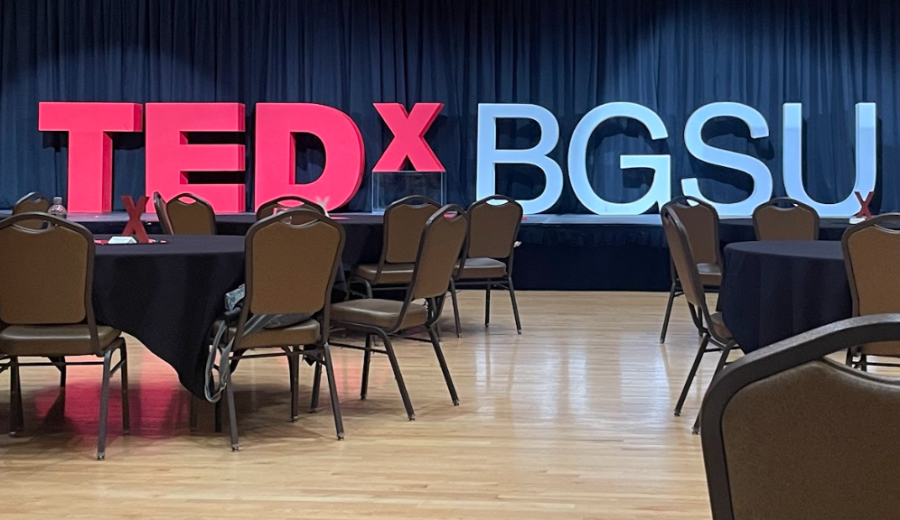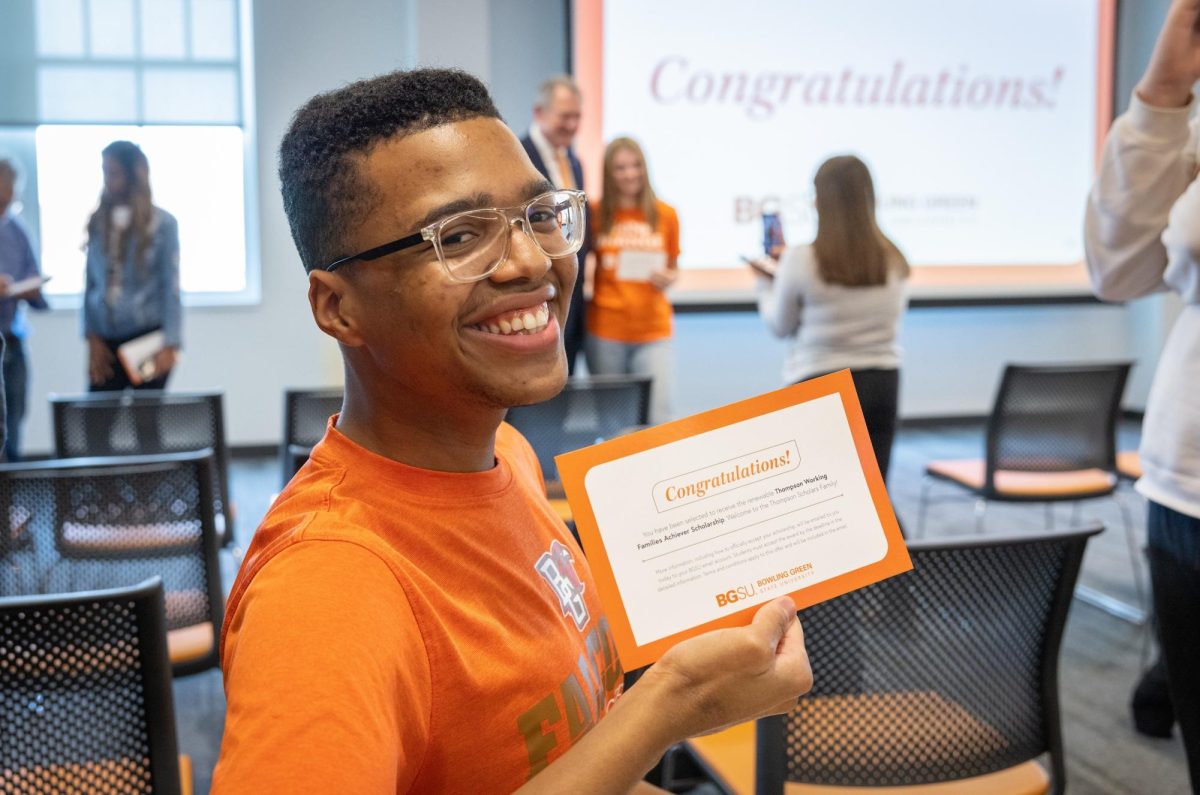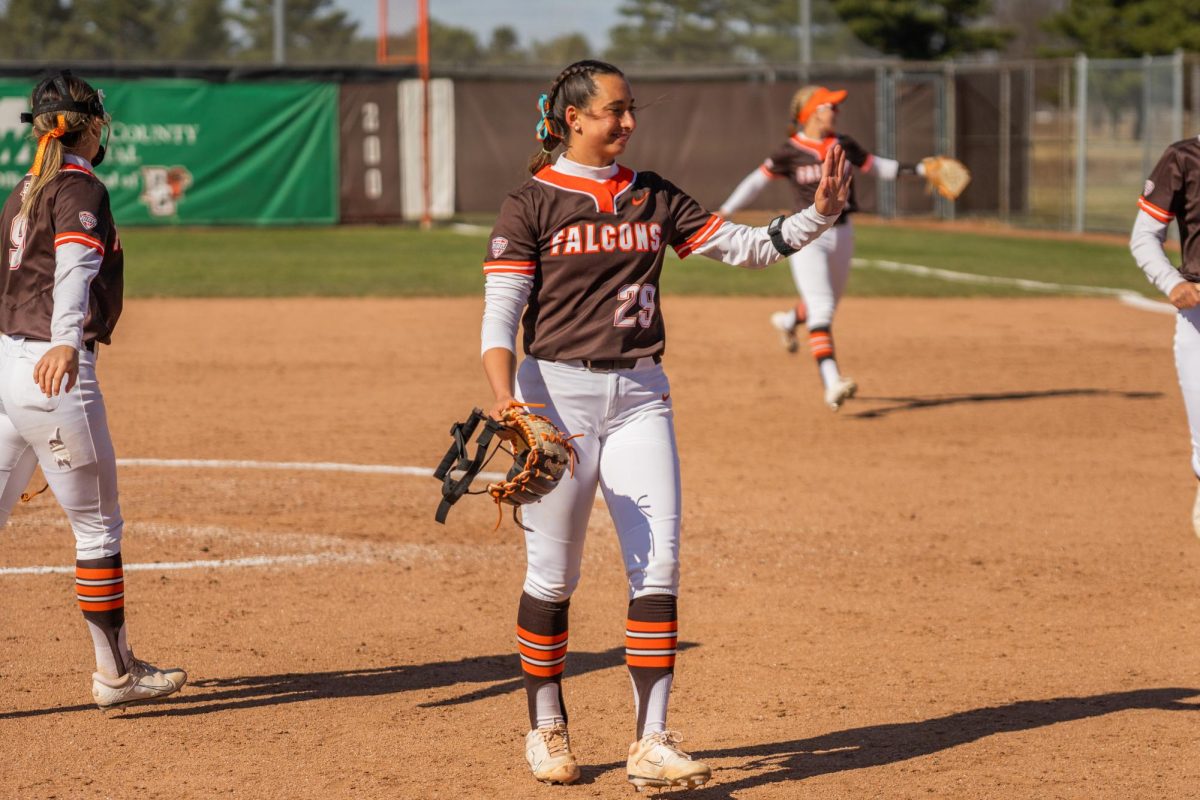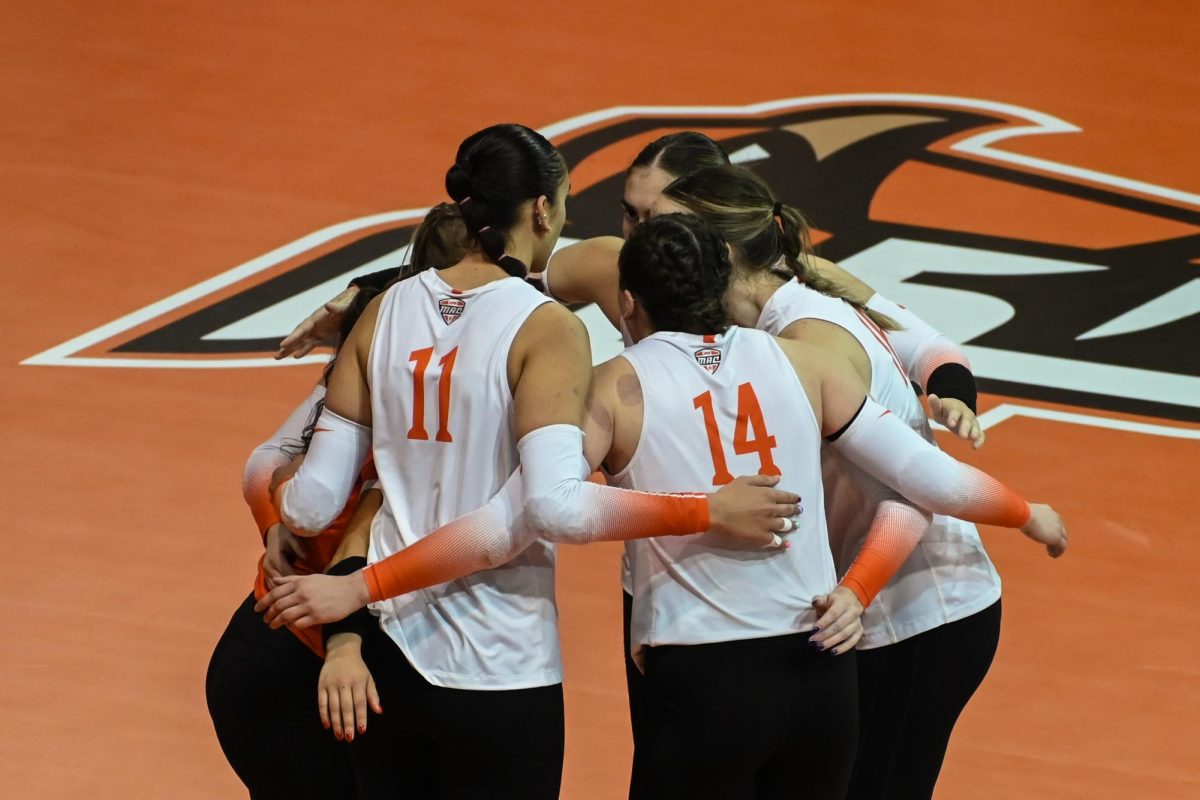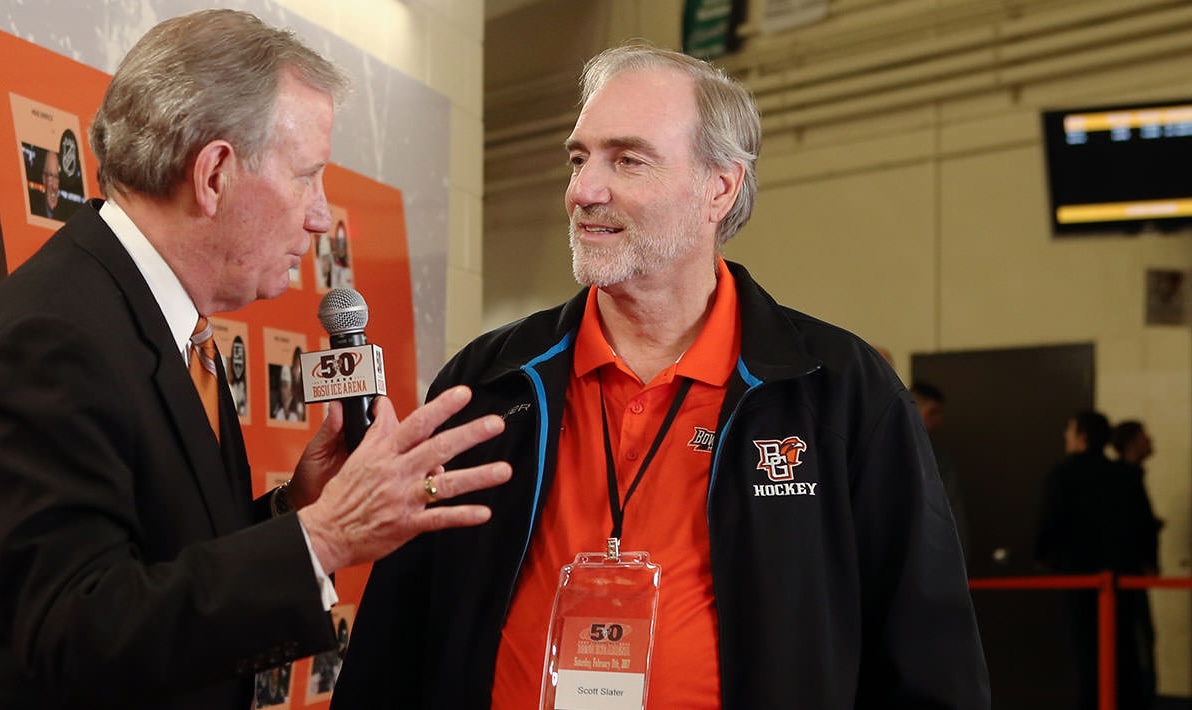A breakdown of the 2023 TEDxBGSU
TEDxBGSU on campus.
March 30, 2023
The TEDxBGSU: For the Public Good conference was held on campus March 22, 2023, featuring presentations by BGSU students and staff, as well as community members.
TEDxBGSU was previously put on by a student organization on-campus, however once COVID-19 hit, the event took a back seat for four years until it was put back on by the C. Raymond Marvin Center for Student Leadership and Civic Engagement for the first time in April 2022.
“It’s an opportunity for them to challenge their communities, so pose really important questions and hold the people in their life or communities accountable,” said Assistant Director of the Marvin Center Kendra Lutes.
TEDxBGSU is an event that has inspired students, faculty, and community members for many years.
Lutes said the Marvin Center plans to host the event again next year and she hopes they can get an even bigger turnout than this year.
Chief Operating Officer of Hixon Zuercher Capital Management, Tony Hixon
“She had enough money to sleep at night, but not enough purpose to get up in the morning,” said Tony Hixon.
He discussed the tragic personal experience of his mother’s death, which led him to help others plan for retirement, ensuring they won’t outlive their finances and still have extra savings for lifestyle choices.
He devotes his time to creating newfound purposes through making plans for a person’s career transition as finances and lifestyle are detrimental to one’s drive.
“Victories often hang in the balance of a successful halftime. There are four main aspects of a successful halftime. What makes you unique? Where do you want to go? Who’s coming alongside you? Lastly, leaving a legacy,” he said.
He ended by explaining to individuals to put in the hard work of identifying their values and applying them to ensure the beneficial setups are set in place for a successful retirement.
BGSU Psychology Professor Daniel Maitland
Daniel Maitland has been studying the feeling of loneliness his whole career.
“The feeling of loneliness appears when there is a discrepancy between the actual and desired levels of social connection. When we are content with feeling alone, we typically do not feel lonely; however, when we start craving social connection, those feelings arise.” Maitland said.
Dr. Maitland gave real-life examples in his speech, talking about his time in graduate school and what he learned from one of his favorite professors.
“Understanding a change in behavior is boiled down to two things: is it a can’t-do problem or a won’t-do problem? Does the individual have the needed skills to accomplish the new task, or is there a barrier that is stopping them from doing it, like their thoughts preventing them from doing it,” he said.
The one takeaway Maitland left the audience with was, “Do not change your mindset; change your actions to prove yourself.”
Vice-President of Workforce Development at Cherry Street Mission Ministries, Tamara Norris
“Close your eyes and think of the person or people that you were helping, and think if you see gratitude, joy, appreciation or shame on their faces,” said Tamara Norris.
Her inspiration for this speech came from an encounter at a workforce training conference in San Francisco, Calif. A homeless woman approached Norris asking for money and shamed her for not giving her enough.
She then described a term known as “toxic charity,” which occurs when those trying to help the community are only doing short-term help and not realizing its long-term effects.
Norris proposed both a short and long-term plan to put the community into appropriate leadership and provide more community service opportunities.
The large audience seemed fascinated with Norris’ speech, as she brought a new perspective to many people who do community service in Bowling Green.
BGSU Graduate Student Bryana Miller
Graduate Student Bryana Miller introduced a new and updated definition of “professionalism,” which favors one’s ability, rather than behavior.
Miller said she realized the idea of professionalism was inherently ableist when she was fired from multiple jobs for reasons unrelated to her ability.
“Supervisors told me I had a strong work ethic, always went above and beyond and was their best employee,” they said. “But in the same breath, they said I zoned out too much, couldn’t sit still and was too awkward.”
She thinks the solution to erasing ableist biases in a professional work environment is to recognize and address that bias by making accommodations an expectation in the workplace.
“In comparison to our neurotypical counterparts, us neurodivergent folks have some pretty unique strengths that should be seen as assets rather than setbacks,” they said.
Senior Director of Marvin Center Jacob Clemens
“Meaningful and authentic relationships emerge when there is shared trust, courage and a willingness to humbly listen to feedback, different perspectives and experiences,” said Jacob Clemens.
From the start of the speech, Clemens challenged the audience to think about how people tend to overlook something as simple as giving feedback.
“I feel disappointed that as a society, and in our community, we are not very good at receiving feedback, criticism or insight about how we have treated others,” said Clemens.
BGSU Senior Lindsay Klees said she enjoyed the speech and learned it’s okay to be vulnerable and ask for feedback.
“As a society, there’s lots of different pressures that we face, so we often get very defensive about them, but we have to internalize and really show humility and humanity.”
Software Engineer Vagish Vala
Vagish Vela was the first speaker of the event and discussed the software used by advertising companies to gather information of consumers, as if they were a product in and of itself.
Vela says that companies use things like social media posts and buying patterns online to sell to advertisers, often analyzing a persons’ online activity for promotion purposes.
“We hand over our data to them every day. You then follow and connect with your friends and post about what you are doing. This tells them who you hang out with and what you like and do not like to do,” he said.
Vela’s speech is not about getting rid of these free products, but to know how you can take control of how much and what data you end up sharing on the internet with these services.


